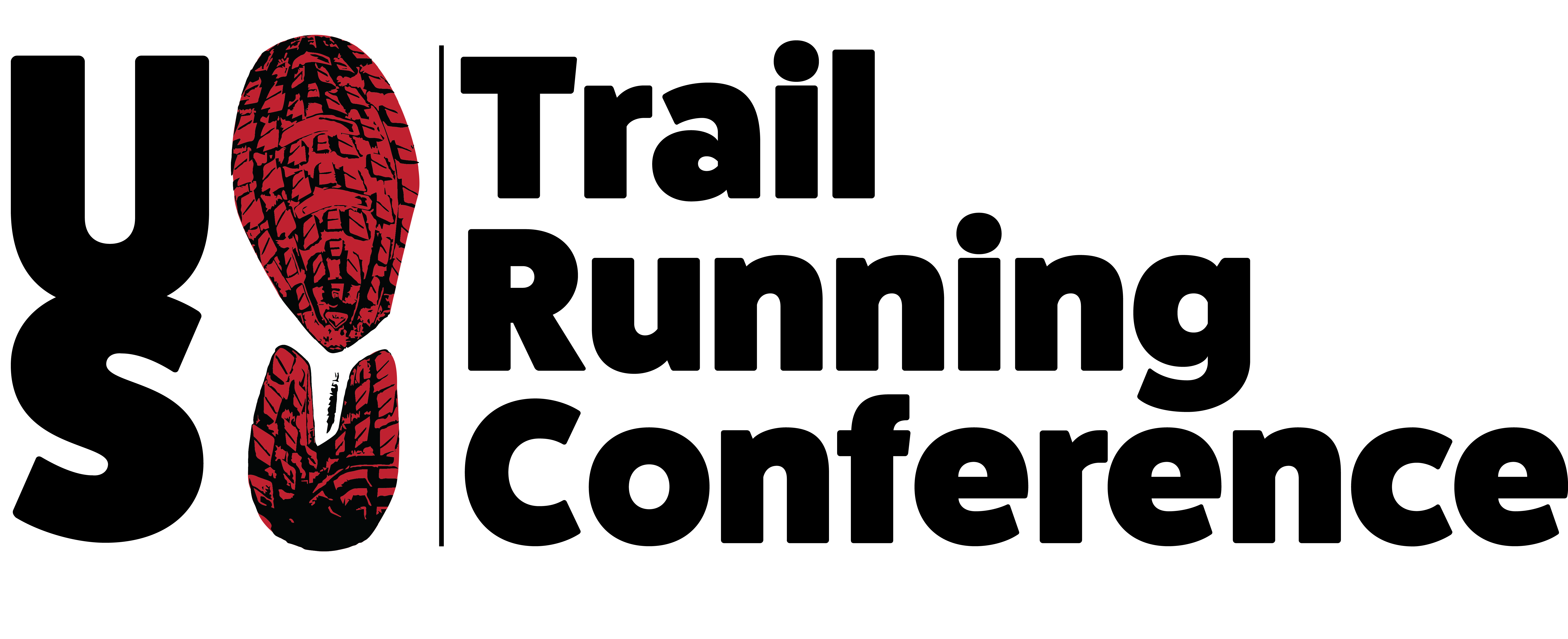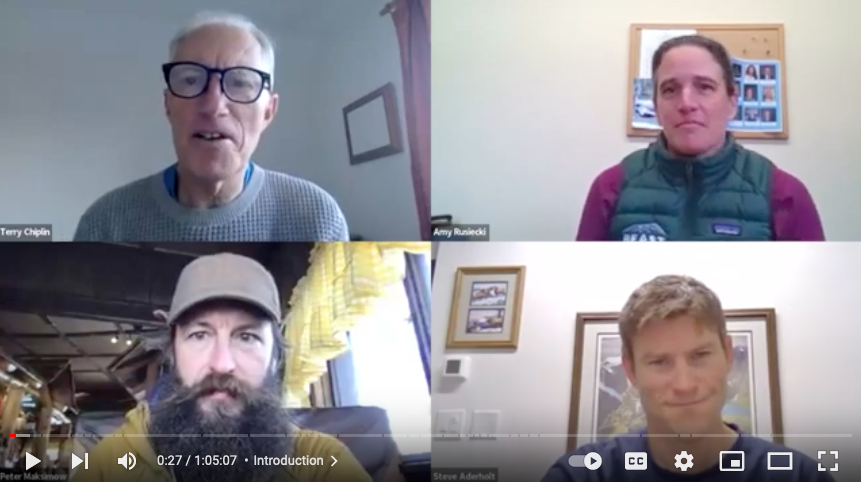Panelists present practical suggestions covering course design, markings, safety & communications
Race Courses – design, markings, safety & communications was the subject for the first webinar in an eight-webinar series produced by the US Trail Running Conference presented by Marathon Printing, was live Thursday, February 23. The webinar series is free for all race directors and event organizers to access, and is held in partnership with the American Trail Running Association.
This webinar’s panelists featured three experienced trail race directors with a history of producing safe and successful races and events. Vermonter Amy Rusiecki, race director for the Vermont 100, Seven Sisters Trail Race (among other races), and owner of Beast Coast Trail Running; Steve Aderholt, race director Cocodona 250 and owner of One Step Events, and Peter Maksimow, former race director for Spartan Trail, Barr Trail Mountain Race, and Event Specialist for American Trail Running Association.
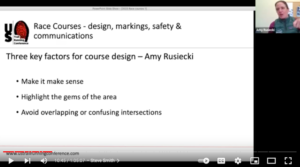 Each panelist shared their top three factors for each of the four components for race courses: design, markings, safety and communications. Rusiecki opened with course design, emphasizing that a course should make sense. “Highlight gems of the area, and avoid overlapping or confusing intersections.”
Each panelist shared their top three factors for each of the four components for race courses: design, markings, safety and communications. Rusiecki opened with course design, emphasizing that a course should make sense. “Highlight gems of the area, and avoid overlapping or confusing intersections.”
Aderholt added that a course should offer a reason to run in a particular area (scenic vistas, varied terrain, interesting obstacles and more), the availability of permits, and potential access for aid stations. Maksimow focused on courses for shorter distance races, emphasizing the course should be runnable (noting of course that not every runner will run every step due to potential steepness, stopping or slowing to enjoy a great view), being conscious of the local environment, and making it beautiful! For course markings, Aderholt said the route must be marked as advertised. “Be consistent and if there are multiple course markings, decide on how and where to place specific route indicators.”.
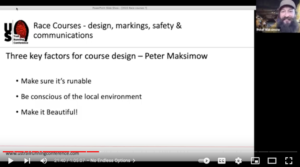 Maksimow emphasized the importance of ensuring that markings are visible for all participants, reusing markings wherever possible to reduce waste and carbon footprint, and to keep in mind that humans are often better than just an arrow or flagging. Rusiecki commented on the topic , “It is better to overmark. I also suggest sharing the GPX file of the course whenever possible.”
Maksimow emphasized the importance of ensuring that markings are visible for all participants, reusing markings wherever possible to reduce waste and carbon footprint, and to keep in mind that humans are often better than just an arrow or flagging. Rusiecki commented on the topic , “It is better to overmark. I also suggest sharing the GPX file of the course whenever possible.”
For course safety, Maksimow highlighted the importance of medical provision as participants can have minor or major injuries on course, that cut off times are well thought out, and that you have liability insurance. Rusiecki emphasized the importance of connecting with local EMTs, having a medical kit at every aid station, setting up communications, and to have a sweep behind the last runner. Aderholt covered evacuation access points – indicating where they should be well in advance of the race and how an evacuation will be performed and by whom, the importance of training for staff, and to have an organized medical team with an identified individual in a leadership role.
O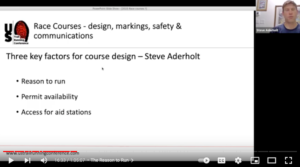 n communications, Rusiecki favors reaching out to local ham radio clubs for support, and to establish standard information and protocols that each station is to communicate, and establish a standard point of contact at each station as well. Aderholt noted the importance of determining communication availability for the entirety of your course, the method you will use to communicate with staff, and to have instructions imprinted on runner race bibs for runner communications. Finally, Maksimow shared the significance of having a comprehensive event plan, including communications during the event, and to be respectful of volunteers’ time by not piling on too many responsibilities.
n communications, Rusiecki favors reaching out to local ham radio clubs for support, and to establish standard information and protocols that each station is to communicate, and establish a standard point of contact at each station as well. Aderholt noted the importance of determining communication availability for the entirety of your course, the method you will use to communicate with staff, and to have instructions imprinted on runner race bibs for runner communications. Finally, Maksimow shared the significance of having a comprehensive event plan, including communications during the event, and to be respectful of volunteers’ time by not piling on too many responsibilities.
Active at Altitude, organizers of the US Trail Running Conference and the webinar series, reported more than 50 participants registered for the session, representing 24 states, as well as Canada, Austria, Bolivia, and England.
The next webinar is titled: Race Courses – logistics, parking, aid stations & spectators, and takes place on Tuesday, March 28, 2023, from 10.00 am to 11.00 am MST. Panelists will be Luis Escobar, RD, Spartan Trail and the Road Dog Podcast, and Anna Hosford, RD, Vacation Races.
Who is this for? Race directors and event organizers who are interested in improving their race. Registration is free – see https://ustrailrunningconference.com/webinar-series/ for more details.
More info:
For details on the US Trail Running Conference and the webinar series, go to https://ustrailrunningconference.com/webinar-series/
Contact Event Director, Terry Chiplin for further information, terry@ustrailconferencestaging.kinsta.cloud, or + 44 07474 648250
#TrailConference #trailrunning #snocosports #snohomishcounty #PlayPNWSports #mukilteo #activeataltitude #atra #marathonprinting #TrailRunningIsForEveryBody
